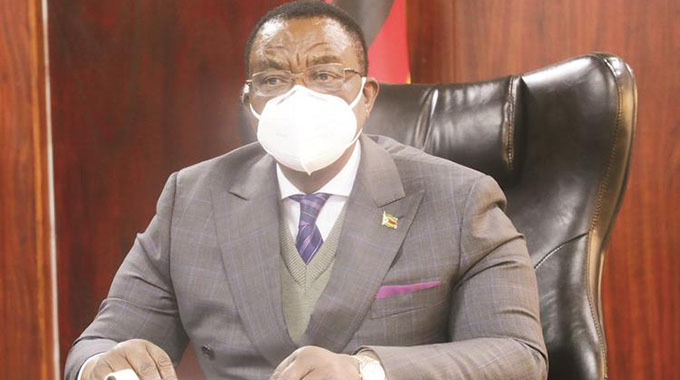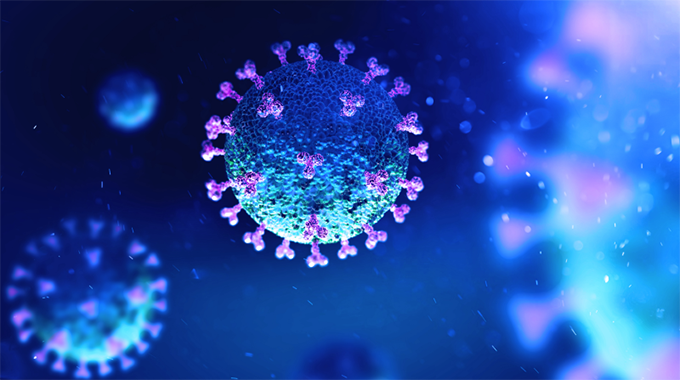COVID- 19: Hygiene key for breastfeeding mothers

Roselyne Sachiti – Features, Health and Society Editor
Last week, the first Covid-19 positive woman in Zimbabwe gave birth through a caesarean section at Gweru Provincial Hospital with steps put in place to make sure the baby did not get infected.
The woman who arrived in the country from Botswana was among Zimbabwean returnees quarantined at Mkoba Teachers College in Gweru and tested positive to Covid-19.
Following her delivery, many were worried about the safety of the baby during breastfeeding and care taking their concerns to social media platforms like Whatsapp, Facebook and Twitter.
Others feared that the mother would infect her newborn baby with Covid-19 during the process of breast feeding and general care.
Some suggested the baby should be bottle fed to avoid contact with its Covid-19 positive mother.
Another group wanted to know how a Covid-19 positive mother can protect her baby from infection and at the same time breastfeed?
Responding to questions by The Herald, United Nations Children’s Fund (UNICEF) said standard infant feeding guidelines should be followed with appropriate precautions for Infection, Prevention and Control (IPC).
“WHO recommends the following frequent hand hygiene with soap and water or alcohol-based hand rub, especially before contact with her child,” Unicef said.
WHO also commends performance of respiratory hygiene: sneeze or cough into a tissue and immediately dispose of the tissue. Hands of the mother should immediately be washed with soap and water or alcohol-based hand rub.
There is also need to clean and disinfect surfaces with which the mother has been in contact.
Wearing a medical mask until symptom resolution and criteria for release from isolation have been met.
Additionally, Unicef added, a breastfeeding mother should be helped to clean her chest with soap and water if she has been coughing on it before breastfeeding. She does not need to wash her breasts prior to every breastfeed.
“While mothers are recommended to wear face masks, if the mother does not have a face mask, she should still be encouraged to continue breastfeeding as the benefits of breastfeeding outweigh the potential risks of transmission of the virus when breastfeeding while applying other IPC measures.”
Most importantly, Unicef added, breastfeeding is vital as it protects against morbidity and death in the post-neonatal period and throughout infancy and childhood.
The protective effect is particularly strong against infectious diseases that are prevented through both direct transfer of antibodies and other anti-infective factors and long-lasting transfer of immunological competence and memory.
“We recommend that mothers with suspected or confirmed COVID-19 should be encouraged to initiate and continue breastfeeding. From the available evidence, mothers should be counselled that the benefits of breast-feeding substantially outweigh the potential risks of transmission.”
“Bottle feeding is not recommended at any particular point. There should be no promotion of breastmilk substitutes, feeding bottles and teats, pacifiers or dummies in any part of facilities providing maternity and newborn services, or by any of the staff, or in the community by any person. Bottles, teats and pacifiers disrupts with breastfeeding and they cause nipple confusion to the babies.”
Unicef warned that babies who are bottle fed are at an increased risk of dying from diarrhea and other infections than children who are breastfed.
“Zimbabwe is a signatory to the International Code of marketing of breastmilk substitutes and health facilities and their staff should not give feeding bottles and teats or other products that are within the scope of the International Code of Marketing of Breast-milk Substitutes to infants.”
Unicef said the effects of Covid- 19 on newborns are not yet widely understood.
However, added Unicef, with the recommended infant and young child feeding practices and appropriate IPC, adequate support from health workers and from the family members, the risk of transmission of COVID-19 to new born babies is very low.
“If the mother is too sick, the care for the baby maybe compromised and there is need for support from health workers and the family support system.”








Comments